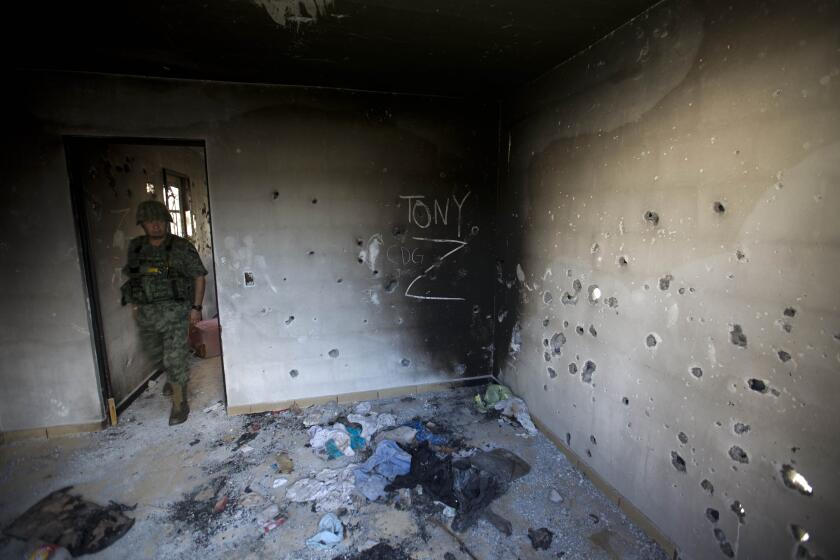Gorbachev’s One Germany Stand Hailed : East Bloc: Apparent acceptance of reunification is viewed as boost to reforms in country reeling from mismanagement.
WEST BERLIN — West German leaders today praised Soviet President Mikhail S. Gorbachev’s apparent acceptance of reunification as a signal that may instill hope in East Germans fearful of the uncertainties of reform.
Chancellor Helmut Kohl called the Kremlin chief’s latest comments on German unity “encouraging,” and Foreign Minister Hans-Dietrich Genscher said Gorbachev had “correctly analyzed” the volatile situation in East Germany.
East Germany’s official news agency ADN said that by making clear his change of mind on the German question, Gorbachev “once more confirmed for all the world his reputation as a politician of realism.”
Support for union with prosperous West Germany has surged among East Germans in recent weeks as the depths of their political and economic crises have become clear.
East German Premier Hans Modrow acknowledged in a speech to Parliament this week that the nation was on the verge of economic collapse and said mounting tensions forced him to move up free elections to March 18.
As many as 2,500 East Germans have been leaving each day, convinced that they stand a better chance starting over in the West than trying to rebuild their nation, driven to the brink of destruction by 40 years of Communist mismanagement.
Anti-Communist sentiment has swelled among the population of 16 million, sparking mass demonstrations and labor strikes to protest the distrusted party’s continued hold on the reins of power.
A Lutheran pastor gave refuge to former leader Erich Honecker after he was released from prison Tuesday, and church officials reported today that their humanitarian action prompted insulting phone calls and threats by parishioners to leave the church.
Honecker, who ruled for 18 years before being forced out of office in October by the peaceful pro-democracy uprising, faces trial in March on a treason charge.
Modrow, a reformer who is more trusted than most of his fellow Communists, was forced by the growing hostility toward his still-dominant party to bring nine opposition representatives into his Cabinet.
The pro-democracy forces joining Modrow were to submit their proposed ministers by today, and three of the parties publicly announced the names of the representatives they put forward.
The Social Democrats, who were hesitant to enter into a coalition with the political parties blamed for East Germany’s current crises, nominated Walter Romberg, who has not played a prominent role in the party to date.
More to Read
Sign up for Essential California
The most important California stories and recommendations in your inbox every morning.
You may occasionally receive promotional content from the Los Angeles Times.










